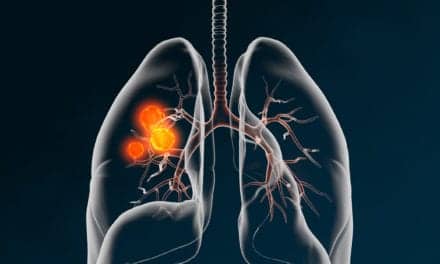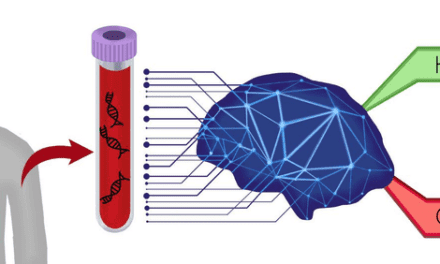Precipio Inc, New Haven, Conn, has announced the launch of a new ICEme kit using its proprietary, ultrasensitive ICE-COLD PCR (ICP) technology. The kit enables physicians to use a liquid biopsy to identify patients eligible for tyrosine kinase inhibitor (TKI) therapies, through analysis of tumor DNA for critical EGFR mutations.
The presence of such EGFR mutations indicates the patient’s eligibility for various targeted therapies, including TKI. The kit complements Precipio’s previously launched TKI-resistance detection kit, providing the clinician with a full suite of sequential lung cancer diagnostic tools critical for determining patient treatment.
The TKI resistance kit is a therapeutic monitoring kit that includes assays for EGFR exon 20 T790M and C797S resistance mutations. These mutations indicate that lung cancer patients have developed a resistance to TKI therapies and should be immediately moved to alternative treatments. The new kit enriches and detects cancer mutations within EGFR exons 18, 19, 20, and 21 and is available on qPCR and Sanger diagnostic platforms, with a level of sensitivity as low as 0.1%.
EGFR mutations are present in 10% to 15% of lung cancers, particularly those occurring in younger patients without a smoking history. They indicate tumors that may have significant clinical response to TKI, a treatment that targets EGFR mutations and is successful in reducing a lung cancer patient’s tumor burden. National Comprehensive Cancer Network guidelines require the evaluation of all lung cancer patients for EGFR mutations.1
Mutations in EGFR exons 18, 19, 20, and 21 cover over 95% of mutations observed in lung cancer tumors. However, studies show that more than 50% of patients may develop resistance to TKI therapies. Therefore, it is critical to monitor patients during therapy to identify resistance, so that affected patients can transition to a next-line alternative treatment. Precipio’s TKI resistance kit detects the T790M mutation, which is common among patients who have developed resistance to those therapies.
Physicians will now be able to use Precipio’s EGFR lung cancer detection kit to identify those patients most likely to respond to certain targeted lung cancer therapies. In addition, once those patients are on TKI therapy, physicians can use the TKI resistance lung panel kit for patients with resistant or recurrent disease who may demonstrate an acquired T790M mutation, indicating that newer FDA-approved agents may be an effective alternative.
Non-small cell lung cancer (NSCLC) has a global incidence of over 1 million people, with approximately 200,000 new patients diagnosed each year in the United States alone. Determining whether patients have an EGFR mutation is critical for selecting the most appropriate therapy.
Precipio’s expanded EGFR kit will enable initial screening, potentially affecting approximately 30% of NSCLC patients who are EGFR-mutation positive, including 38,000 such patients in the United States. These individuals would likely benefit from T790M and C797S resistance mutation monitoring to ensure the most appropriate therapy.
Precipio’s multiplexed ICE COLD-PCR test offers major advantages over current sequencing technologies:
- It delivers at least a 500-fold improvement in sensitivity compared to standard methodologies. This enables detection levels as low as 0.1% on plasma (blood) samples.
- Its ultrahigh sensitivity enables comprehensive genomic analyses using liquid instead of solid tumor biopsy, allowing a new level of treatment optimization by regularly monitoring treatment responses and altering the treatment plan accordingly.
- Its dramatically lower cost, compared with competing assays, is an advantage critical to maximizing adoption of this platform within the cancer treatment field, ensuring widespread access for cancer patients.
“The new EGFR kit represents the completion of an end-to-end liquid biopsy solution for lung cancer patients who require both initial tumor evaluation, as well as monitoring during therapy to ensure their treatment is most effective,” says Ilan Danieli, CEO of Precipio. “With each new test we create on the ICP platform, a new segment of cancer patients may benefit from its use, increasing the revenue potential for adopters of the platform. We have strategically prioritized expansion of the menu, which we expect will result in higher adoption rates by large cancer treatment centers, an increasing number of which are presently evaluating commercial utilization of ICE-COLD PCR.”
To learn more, visit Precipio.
Reference
- NCCN Guidelines [online]. Plymouth Meeting, Penn: National Comprehensive Cancer Network, 2018. Available at: nccn.org/professionals/physician_gls/default.aspx. Accessed October 25, 2018.






